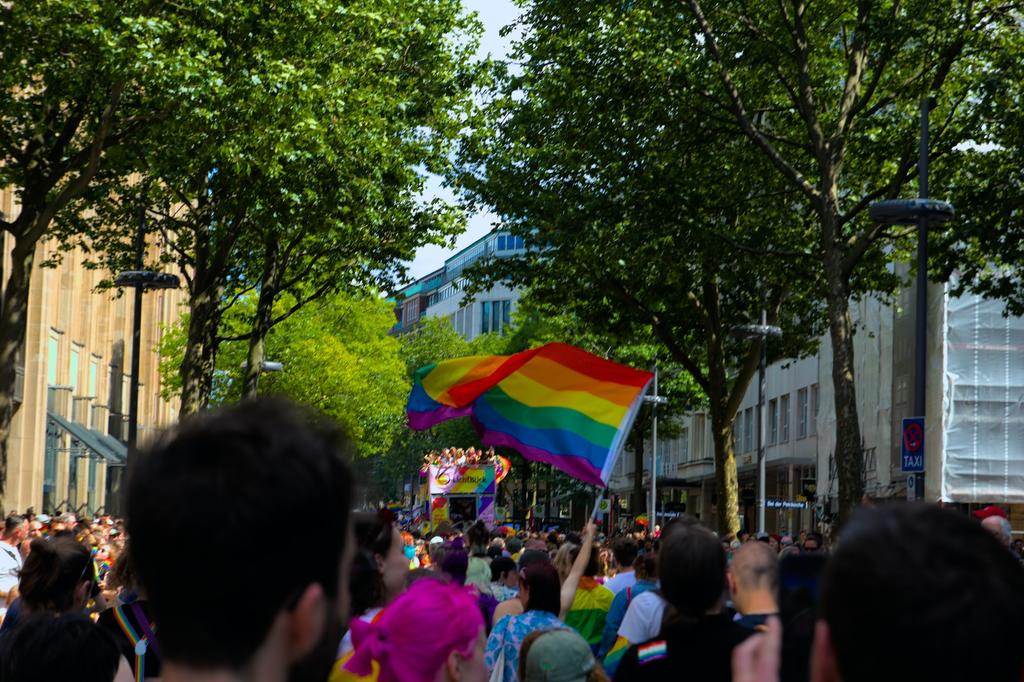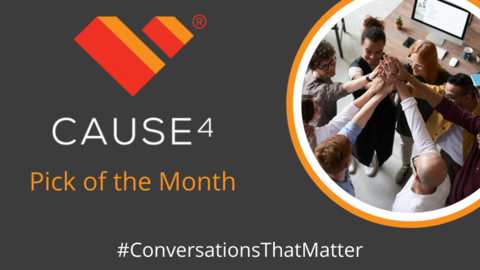LGBTQIA+ Communities, Governance and the Charity Sector
31 August 2023 | By Lucy Pratt

The benefits of a more diverse charity sector, amongst donors, charity staff and Grantmakers alike, is well known. It allows for a larger talent pool for recruitment, new perspectives, more astute decision-making and a general improvement in performance via increased engagement and trust. Despite this, Stonewall found that just eight charities were amongst the top 100 LGBTQIA+ employers in UK. Furthermore, just 15% of small charities in the UK have an LGBTQIA+ or Under 30 individual on its board.
“Now, our challenge to charity leaders and trustees across the sector is essentially this – what action are you taking now and in the years ahead to ensure that your charity is a safe place for all of your employees and that your messaging is reaching all the people who need you?”
Kevin Taylor-McKnight, founder and campaigner at Charity So Straight
There are, however, several organisations doing brilliant work to support LGBTQIA+ governance, recruitment, visibility and advocacy in the charity sector, and we wanted to showcase a few examples of some of the organisations doing great work in this area:
Kevin Taylor-McKnight set up Charity So Straight after working in the charity sector for more than 25 years. He had often noticed a hostile response when raising LGBTQIA+ issues within his charity roles, and this motivated him to build a space for better allyship and guidance for LGBTQIA+ charity staff. It’s latest campaign, #StandWithTrans, asks charity sector leads to come together and pledge to support a charity sector that is safe for all trans and non-binary people:
“We believe that it’s simply not enough to remain neutral on this issue. Our silence allows anti-trans rhetoric to grow, and yes, we understand there are some risks to speaking out, but the risks of saying nothing are considerably higher, and are far less significant than the risks trans people, particularly trans women, face in their everyday lives right now.”
Charity So Straight’s Queer Trustees programme, has made remarkable steps towards better LGBTQIA+ representation on charity boards. Its Slack Network (sign up form here) helps to facilitate targeted matching for prospective LGBTQIA+ charities seeking to diversify their boards.
INvolve functions as both a consultancy and a worldwide network, encouraging leaders to be catalysts for change, building organisations where all individuals can flourish. It is focused on creating equitable opportunities; developing and inspiring the diverse leaders of the future whilst driving accountability for change through senior leadership and management teams.
Its Inclusive Leadership Programme trains senior leaders to become active advocates of inclusion. The Leaning into Allyship & Advocacy module gives a special focus on mitigating bias, active allyship and building empathy.
The charity’s Outstanding Role Model lists celebrate excellence in LGBTQIA+ advocacy as allies and in leadership – the lists feature a number of LGBTQIA+ charity chairs and co-chairs.
“This is more than just a role model ‘achieving’. We prove that being authentic is not an impediment”
Ann Limb, Chair, The Scouts
LGBT Foundation believes that every LGBTQ+ member of society deserves an equal opportunity to reach their potential. It delivers a programme of support, advocacy and education that works at many intersections of the LGBTQ+ experience, including LGBTQ+ individuals with dementia, in recovery or who are homeless. It also supports those who have suffered a hate crime, sexual violence or domestic abuse.
The Foundation works with the NHS on its Pride in Practice to educate GP practices, dental surgeries, pharmacies and optometrists to ensure that all lesbian, gay, bisexual and trans people have access to inclusive healthcare that understands and meets the needs of our communities.
Finally, the charity’s work in policy and research highlights LGBTQIA+ people’s needs and experiences; informs stakeholders of appropriate action; and works to change policy and practice to improve life for LGBTIA+ people. Read its latest publications here.
Within its board, LGBT Foundation recently moved to a co-chair structure, aiming to ensure that women's voices are present throughout all levels of the organisation. The change saw Deputy Chair Olivia Butterworth take on equal leadership of the board alongside Smyth Harper:
“Moving to a co-chair arrangement sends out a clear signal about our commitment as both a board and an organisation to inclusivity. It reflects wider work that has been done at LGBT Foundation to demonstrate our commitment to be there for all lesbian, gay, bi and trans people and to fight for everyone in our community to have a voice and ensure that voice is heard.”
Smyth Harper, Co-chair, LGBT Foundation
We hope this list has encouraged you to hunt out more of the fantastic work being produced at LGBTQIA+ charities, and perhaps to engage with the campaigns produced by movements such as Charity So Straight and Queer Trustees.
It may well have prompted you to consider how your charity workplace might do better in LGBTQIA+ support. If that’s the case, here are some points to consider:
- Internal diversity – How diverse is the representation at your charity or on your board? Could you do more to include a wider range of perspectives in your decision-making? These are the building blocks for wider inclusivity and cannot be dismissed.
- Recruitment – Be sure to adopt an inclusive recruitment process, which will result in a more diverse applicant pool. The pathway to recruitment in your organisation should consider using positive action or blind CVs (a technique in which names and characteristics that may trigger biases (such as age, gender, social background, etc.) are removed). There are also plenty of recruitment websites that aim to target groups that might be underrepresented in your workplace – try Proud Employers for LGBTQIA+ recruitment.
- Impact Reporting – A survey from Third Sector found that 36% of non-profit organisations did not report or measure their ED&I. It is essential that your strategy includes measuring and reporting. Without this, you will not be able to see if your strategy is resulting in positive change or where further improvements and learning is required.
- Working Practices and Policies – Do you actively communicate your equality policy to staff, making clear the route for reporting homophobic, transphobic and biphobic discrimination? It is important for all charity leaders to consider implementing some staff training focussed on diversity, inclusion and intersectional identities.
- Communications – Are you clearly communicating in your output on social media and online that you LGTBIA+ positive? Are you making a concerted effort to expand your reach to diverse groups? (This is particularly important for faith-based charities, which LGBTQIA+ communities might feel more hesitant to approach).
Is there another organisation you think is doing brilliant work to support LGBTQIA+ governance, recruitment, visibility and advocacy in the charity sector? Let us know on Twitter @OfficialCause4.



